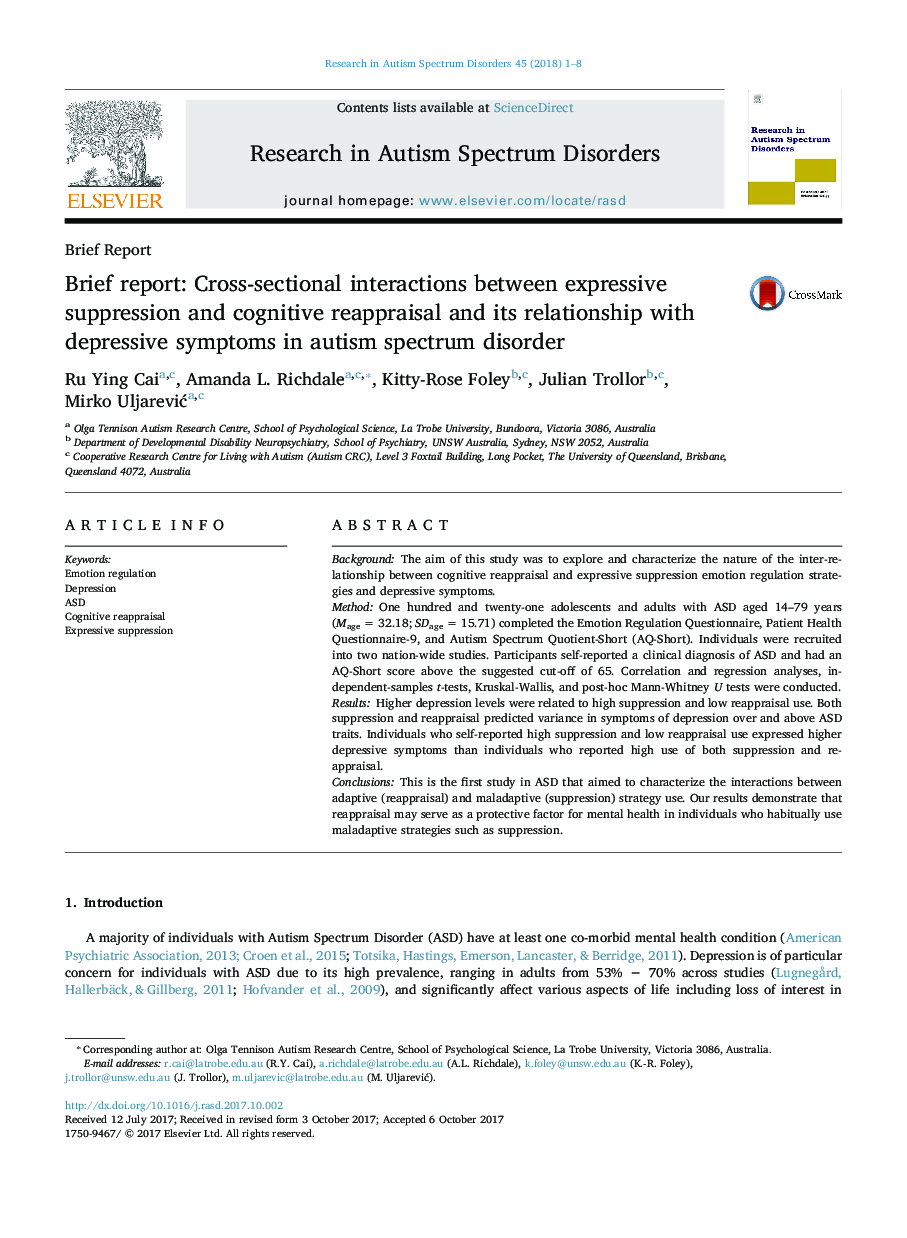| Article ID | Journal | Published Year | Pages | File Type |
|---|---|---|---|---|
| 4940845 | Research in Autism Spectrum Disorders | 2018 | 8 Pages |
â¢Depressive symptoms were negatively associated with cognitive reappraisal.â¢Depressive symptoms were positively associated with emotion suppression.â¢Adaptive strategies buffer against effect of maladaptive strategy use on mental health.
BackgroundThe aim of this study was to explore and characterize the nature of the inter-relationship between cognitive reappraisal and expressive suppression emotion regulation strategies and depressive symptoms.MethodOne hundred and twenty-one adolescents and adults with ASD aged 14-79 years (Mage = 32.18; SDage = 15.71) completed the Emotion Regulation Questionnaire, Patient Health Questionnaire-9, and Autism Spectrum Quotient-Short (AQ-Short). Individuals were recruited into two nation-wide studies. Participants self-reported a clinical diagnosis of ASD and had an AQ-Short score above the suggested cut-off of 65. Correlation and regression analyses, independent-samples t-tests, Kruskal-Wallis, and post-hoc Mann-Whitney U tests were conducted.ResultsHigher depression levels were related to high suppression and low reappraisal use. Both suppression and reappraisal predicted variance in symptoms of depression over and above ASD traits. Individuals who self-reported high suppression and low reappraisal use expressed higher depressive symptoms than individuals who reported high use of both suppression and reappraisal.ConclusionsThis is the first study in ASD that aimed to characterize the interactions between adaptive (reappraisal) and maladaptive (suppression) strategy use. Our results demonstrate that reappraisal may serve as a protective factor for mental health in individuals who habitually use maladaptive strategies such as suppression.
